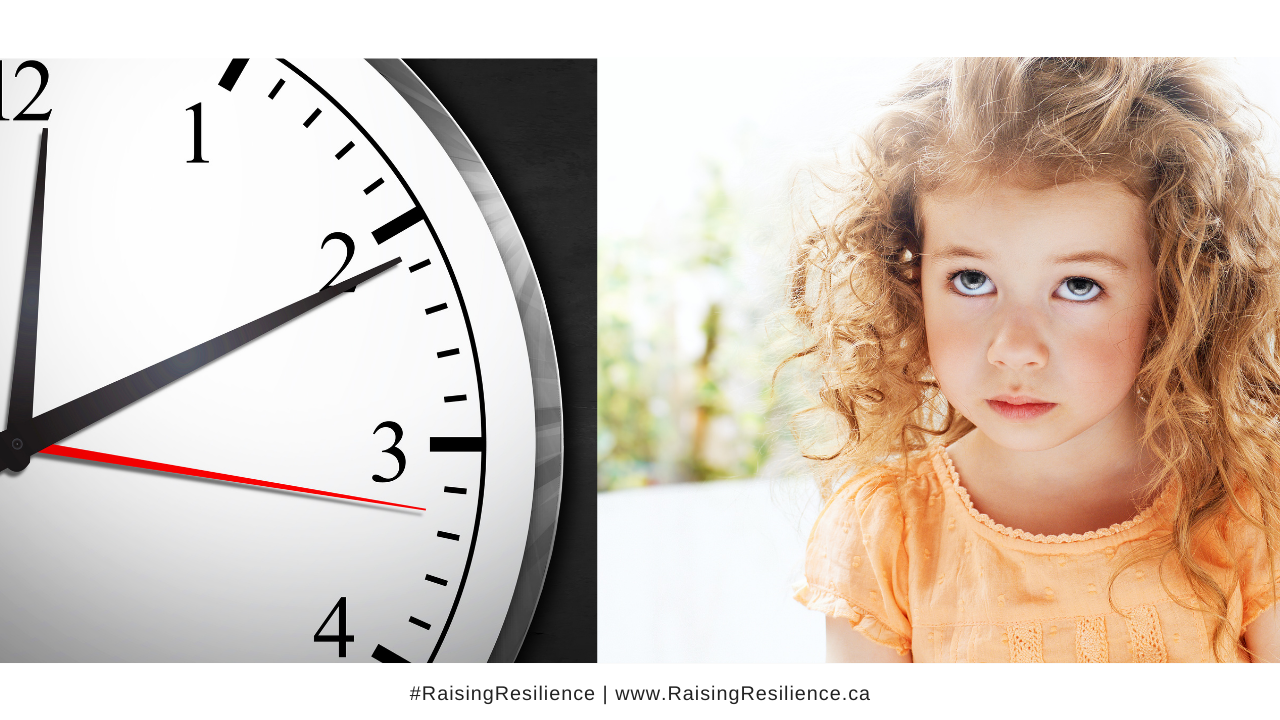How To Ease The Stress of Daylight Savings

Messing with the clocks can wreak havoc in your home if you have sensitive kids.
The yearly ritual of daylight savings is very disruptive to our circadian rhythm - our sleep/wake cycle - and, as an extension, it disrupts our entire hormone system for a little while.
Hormones are chemical messengers that affect how we feel and function. For kids who are already struggling under a heavy stress load, this hormone disruption can bring out the worst in them.
Around the time of daylight savings - both in the fall and in the spring - some of the things parents report to me are:
- more night waking,
- increased hyperactivity,
- more disruptive behavior at school and at home,
- less focus and ability to concentrate,
- more aggression and explosive behavior.
And they’re not alone! A 2020 article in Scientific America reported that messing with the clocks causes so much disturbance to our mood, health and behavior that governments around the world are considering abolishing it citing evidence that it increases traffic accidents, risk of heart attack, mood disorders, and medical errors due to fatigue (source).
Several studies have shown that even 30-60 minutes of sleep deficit can exacerbate symptoms like impulsivity, forgetfulness, and poor memory.
Sleep has such a major influence on how our kids feel and function that it’s one of the first orders of business when I work with a parent on a drug free plan to help stabilize mood, learning, behavior issues in their kids.
(related post: The Foundational Trifecta For Resilient Health)
How To Help Kids Cope With Daylight Savings
For the time being we're stuck with springing forward and falling back, so here are some strategies to help your kids weather this stress storm.
Essential Oils For The Nervous System.
Essential oils used on the skin or in diffusers can help calm the nervous system and stabilize the circadian rhythm. One of my favourites is the Sleep Blend from Vibrant Blue. Put a little on the bone behind your child's ears to promote sleep.
Another one to try is Vibrant Blue's Circadian Rhythm blend, particularly in conjunction with the next strategy.
Routine.
The more we can stick to a routine the happier our hormone balance is likely to be - especially as it pertains to how we sleep and wake. Disruption to routine is the reason daylight savings causes a problem in the first place! It takes a while for the body to adapt but going to bed and rising according to the clock, not the body cues, can help ease the transition. If you're struggling to do this because your child is wired at night, try combining this strategy with the Circadian Blend essential oil mentioned above and the next strategy.
Melatonin.
Melatonin is the primary hormone that slips us into sleep. It's triggered by darkness and the lowering of cortisol that naturally happens in the evening. Without sufficient melatonin it's hard to sleep. Giving your child a low dose of melatonin (1-3mg) as a supplement in the evenings around the time of the clocks changing can help them fall asleep faster and sleep more deeply so they can adapt to the new rhythm more quickly. Consult with a professional if using melatonin longer than a few days. It's also important to remember that melatonin production is triggered by darkness. So make sure your child is sleeping in a dark room to maximize their melatonin production, and consider the next strategy as well.
Ditch The Screens.
The blue light from electronics and TVs can reduce the production of melatonin by up to 50% (source). So turn all electronics off at least 2 hrs before bed to improve sleep and help your child adjust to the new rhythm. If they need to use the computer for homework, consider blueblocking or amber glasses to preserve the melatonin capacity.
5HTP.
This amino acid is a building block for the hormone serotonin which helps us feel content and happy. Serotonin is, in turn, a building block for melatonin - our primary sleep hormone. 5HTP can be a very helpful supplement around daylight savings, especially if the symptoms your child is expressing are things like depressed mood, increased irritability, explosive behavior, and worry. Start with a low dose of 25-50mg in the morning and move up from there as needed. If it causes sleepiness during the day shift it to the afternoon. Consult with a practitioner if your child is on any medication or if 5HTP causes further agitation.
(Related Resource: Nutrition For The Brain)
Breakfast.
You might find your child's hunger patterns are disrupted from daylight savings. That's to be expected because our hunger is tied to our circadian rhythm. Getting up an hour earlier or an hour later can really mess with hunger hormones (this seems to be especially true in the spring when we lose an hour of sleep). Encourage your child to eat a little in the morning even if they're not hungry. This will help ease the body into the new rhythm.
(Related Free Strategy Sheet: The Better Breakfast Formula)
Bottom Line
If your child's mood, behavior, sleep, hunger patterns seem to be worse around the time the clocks change, you're in good company. It's a tough time for a lot of families.
The good news is that kids are adaptable and you now have a toolbox of strategies to help them ease into the new rhythm.
As always, head on over to the Raising Resilience Community facebook group to discuss your questions and strategies or post them here.






